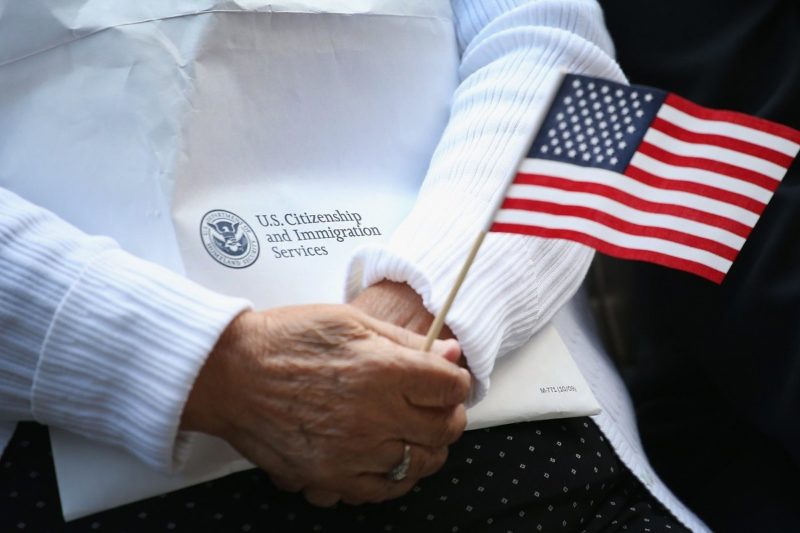Anti-Immigrant Bill Advances in North Carolina
The bill may become law by the end of the legislative session Saturday, American Civil Liberties Union of North Carolina Acting Executive Director Sarah Preston told Rewire.

North Carolina’s HB 100, a bill that targets undocumented communities and aims to penalize cities not complying with local immigration laws, was sent to the house rules committee this week after passing the senate.
The bill could become law by the end of the legislative session Saturday, American Civil Liberties Union of North Carolina Acting Executive Director Sarah Preston told Rewire.
HB 100 expands on HB 318, the Protect North Carolina Workers Act, signed into law last year, which requires employers doing business with a “public entity” to use the federal E-Verify system to authenticate the citizenship status of job applicants, and bars government agencies and local law enforcement from verifying a person’s identity or residence using consular or embassy documents.
HB 100 will prohibit an exception in HB 318 that allows law enforcement to accept identification provided through local programs such as the FaithAction ID Initiative, which provides identification for any resident in the community “who may not have access to government issued forms of ID.”
As ThinkProgress reported, these local ID programs were created “in partnership with law enforcement officials precisely because police wanted to make cities safer … FaithAction International House realized that undocumented immigrants were afraid to call the police when crimes occurred, fearing officers would arrest them instead because they lacked identification.”
Another bill introduced in May, SB 868, aims to prohibit law enforcement officials from being able to accept these IDs and under HB 100, these programs, popular in larger cities like Greensboro, would be illegal.
“Removing the ability to use these community IDs makes undocumented immigrants more likely to be targets of crime, because it makes them fearful to come forward and interact with law enforcement,” said Preston. “People who want to take advantage of the community know this community has very little recourse.”
What’s “incredibly troubling,” Preston said, is the reporting piece of the bill. The law allows anonymous tipsters to call the attorney general’s office and make complaints against their city, town, or local law enforcement alleging it is not following local immigration laws. As CityLab reported, a second reporting measure allows any person to “file a lawsuit asking a court to decide whether a city or county is non-compliant with state law.”
If the attorney general confirms a report that a city is not complying with the state’s anti-immigrant policies, whether these violations are intentional or inadvertent, the city’s transportation and education funding will be withdrawn for the year.
“These complaints would be anonymous and confidential and could take shape in many different ways, like someone at the county clerk’s office helping an undocumented person access records or seeing an undocumented person in court that a North Carolina resident doesn’t think is being treated as badly as they should be,” Preston said.
The attorney general would investigate “no matter how frivolous or incomplete it may be,” Preston told Rewire.
HB 100 comes on the heels of the Supreme Court’s split ruling on Deferred Action for Parents of Americans (DAPA), which would have provided an estimated 3.6 million undocumented parents of U.S. citizen or legal permanent resident children with a renewable work permit and exemption from deportation for two years. At a time when advocates are calling on cities to provide more local protections for undocumented immigrants in light of the ruling, Preston said this measure represents the “unnecessary targeting” of a community that has already been under attack—both nationally and in North Carolina—for years.
A recent series of immigration raids hit North Carolina’s undocumented communities, which comprise 7.6 percent of the population, hard. The state doesn’t have any sanctuary cities, which are regions that do not work with U.S. Immigration and Customs Enforcement for the detainment and deportation of undocumented community members.
HB 100 would actually make sanctuary cities illegal, explained Preston. And the inability by undocumented community members to access any form of identification would erode any relationship local law enforcement has been able to build with this community.
“I can’t answer why the state is going after such a vulnerable population,” Preston said. “I think it’s wrong and misguided, but I don’t have an answer. I wish I knew.”

